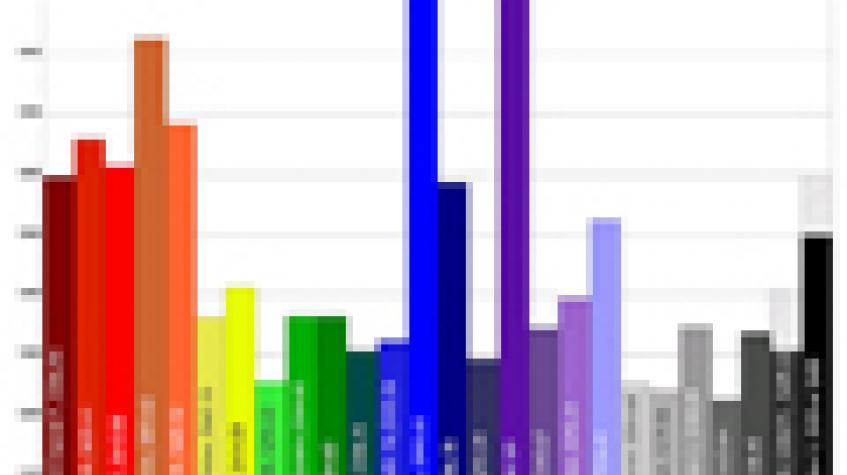
Many people are saying that the PlayStation 3 is "overpriced" or "not worth the money" while others can barely hold in the excitement.
One of our members, Lunatik-zx, stumbled upon a nice graph that puts it all into perspective. The folks at curmudgeongamer.com draw some lines:

This graph displays a large number of console systems from historical points in time, adjusted for inflation. Although the Nintendo Wii is missing (graph was probably created before its pricing was finalized) it is good to reflect upon "what" we're spending our money on this month.
Notice the high spikes for the SNK's NeoGeo and the Panasonic 3DO, which had eight big named companies backing it (one was EA's co-founder Trip Hawkins). The two costly console systems no longer remain a force in the industry. Why?
"Unfortunately the 3DO console itself was priced at $700, and the promised 'early adopters' never showed up to purchase mass quantities of games. The quality of 3DO games was perceived as low, on the whole. When the Sony PlayStation appeared in 1994 with its hardware 3D graphics support and outstanding game software, it smashed all remaining hopes for the 3DO console. In 1996, The 3DO Company sold its next generation console, codenamed M2, to Matsushita and changed its business to develop and publish games for the PlayStation as well as other game consoles and PCs." --wikipedia
The NeoGeo, unlike the 3DO, had hand-held versions and a few home systems but that didn't help. The games were extremely expensive and the graphics were quickly being obsoleted by competing systems with a cheaper price tag.
"Other games cost $200 and up — each. With these 'premium' prices though, most gamers weren't able to afford the system and so the console was only accessible to a niche market." --wikipedia
Would these costly console have been accepted into gamers homes if they had prior generation dominance? Perhaps, if the consoles would have started with a lower quality system they would have gained more market traction and early adopters in a time where the SNES was the past and the Atari Jaguar was showing itself as a very limited system.
The market timing was perfect for these two systems - the SegaCD was proving to be useless and the Sega 32X carried roughly ten games. Was it the cost of the console or perhaps the technology was too advanced?
As a former Electronics Boutique employee (yeah, back when the long-version of the name was cool) it was obvious to us why the systems didn't catch on.
- The games were obscure in nature, carrying no big hit franchises.
- Franchise games that did exist also existed on other systems (no "exclusives")
- No customer had heard of the systems (bad advertising)
- Electronic Boutique employee's were not sure how to push the system when Sega and Nintendo brand names continued to dominated the market.
- The system had high costs for games/console with a limited selection of titles while the competing system was cheap and had a wall full of titles.
This season we're going to be pressed with buying a Nintendo Wii, a Microsoft Xbox 360 and the Sony PlayStation 3. Each system has passed a number of tests: Prior generation console with moderate to high success, an ad campaign to get the word out, exclusive games and hot franchises.
 Does the PS3 have a chance? Considering historical consoles it seems that the PlayStation 3 has a great chance of success. The closest system, in history, the PS3 may mimic would be that of the Sega Dreamcast. The one console that everyone seemed to love but nobody seemed to adopt (until after its demise).
Does the PS3 have a chance? Considering historical consoles it seems that the PlayStation 3 has a great chance of success. The closest system, in history, the PS3 may mimic would be that of the Sega Dreamcast. The one console that everyone seemed to love but nobody seemed to adopt (until after its demise).
What exactly was the fall of the Dreamcast? The console itself was built with technology well before its time and its cost was high - but not too high. The PS3 has technology that outperforms the competition and can be considered "early to market" for many of the technological specifications. Does this put it in the same category as the Dreamcast or was it Sega, as a company, that created the bad decisions and a poor road map to success?
It seems that each next-generation system has dominance in a specific area of the market. If the cost isn't the barrier what is to stop Sony from regaining the lead and the hearts of gamers around the world? Sony has been marked over the last year with a bit of bad juju, but it seems clear that the road to failure is marked by milestones of error - not just a bad launch.

